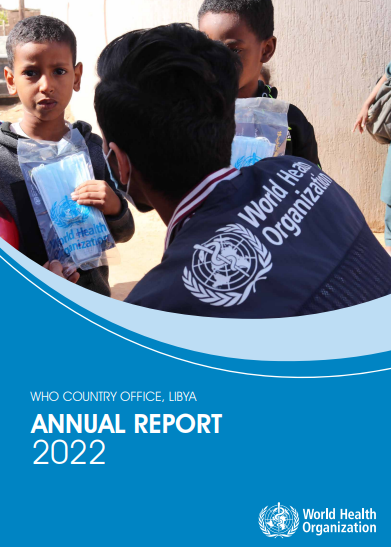Tripoli, 10 May 2020 – The World Health Organization has dispatched essential medical supplies, including emergency health, trauma, surgical and noncommunicable disease kits, to the town of Tarhouna, 65 kilometres southeast of Tripoli. Tarhouna has been the scene of intense hostilities over the past month, and more than 3000 people have fled their homes. Humanitarian agencies have very limited access to approximately 200 000 civilians who remain trapped inside the town and surrounding areas.
This shipment is the second to be delivered to Tarhouna over the past few weeks. On 20 April, WHO delivered 6 trauma kits and 3 surgical supply kits to the town. WHO has also dispatched emergency kits and essential medical supplies to the town of Baniwaleed, 180 kilometres southwest of Tripoli. Trucks bound for Tarhouna via Baniwaleed with essential supplies have been bombed by drones several times, leaving Baniwaleed population of almost 150 000 people facing acute shortages of medicine, food and fuel. WHO used a generous contribution from the Government of Germany to support all 3 shipments.
WHO is extremely concerned over the dire humanitarian health situation in Tarhouna. Electricity and water supplies have reportedly been cut, affecting health care services and the cold chain for vaccines and greatly increasing the risk of communicable disease outbreaks. Most health care facilities have been forced to suspend their services, and only Tarhouna teaching hospital and one polyclinic remain open. Vaccination, gynaecology and obstetrics services have been disrupted and chronic disease patients have very limited access to life-saving medicines and treatment. Surgical services are in high demand: a team of 6 surgeons deployed by WHO carried out 749 operations in April 2020 alone.
The situation in Baniwaleed is also of grave concern. WHO is planning to deploy an emergency medical team to strengthen health care services in the town.
The hostilities have also hampered the response to the COVID-19 pandemic. Plans to establish 100 isolation beds have had to be put on hold due to ongoing insecurity.
WHO is monitoring the situation closely and working to deploy additional mobile medical teams to strengthen health care services. WHO remains in close contact with its field coordinator inside Tarhouna and with the National Centre for Disease Control, which is working to strengthen disease surveillance in the town. WHO will also participate in inter-agency humanitarian convoys to Tarhouna once the situation stabilizes.





 Libya country office annual report, 2022
Libya country office annual report, 2022
